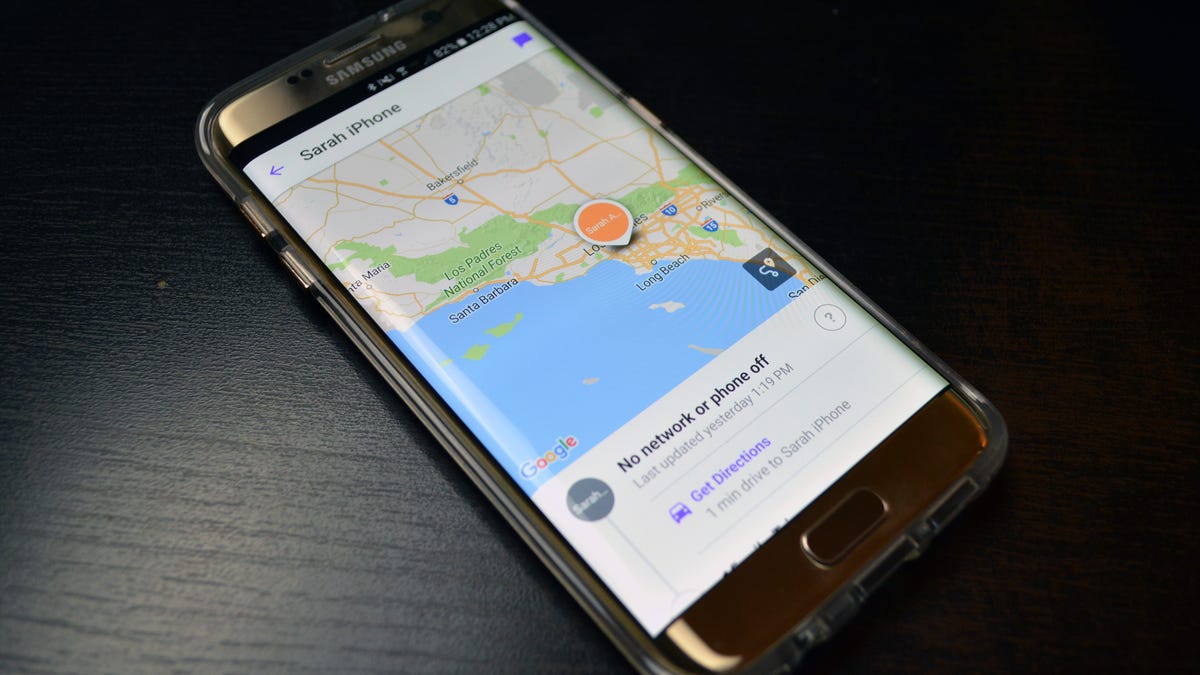How to know exactly where your spouse is at all times
Phone-tracking is easier than constantly texting for updates, but these apps are only for people with nothing to hide.

Tracking your spouse's phone -- or anyone's phone, for that matter -- probably sounds...creepy. But, assuming your relationship is pretty solid and trust-issue-free, tracking someone's phone via an app is actually pretty convenient.
It's much easier to pull up Find My Friends, for example, and see just how much traffic your significant other is stuck in, than it is to constantly text them for updates.
Here's how you can track someone's phone without being creepy (these apps require both parties opt-in before any tracking or location sharing takes place).
For the iPhone family: Find My Friends (iOS)
Apple's Find My Friends app is a good solution if you happen to be an iOS-only family -- it does not work with Android or Windows phones, though there is an unrelated Android app of the same name. To set up Find My Friends, you will need to invite users you want to follow. To do this, open the app and tap Add in the upper right corner, and find the person you want to add.
When you invite a user to Find My Friends, you are inviting them to share their location with you -- not the other way around. If you want to share your location with them, you will need to tap their name in the app and tap More... in the upper right corner. Tap Share My Location and you will see an options for sharing your location for one hour, until the end of the day, or indefinitely.
You can turn off location-sharing for a specific friend by going back to this menu, or you can turn off location-sharing for all friends by tapping Me from the main screen and toggling off Share My Location.
For Android users: Google+ Location Sharing
Google+ has a locations feature that lets you share your location -- either your exact location or the city you're currently in -- with anyone who also has a Google+ account. This feature will work for a house divided (Android and iOS), but all users will need a Google+ account in order to sign into Google+ in the first place.
Google+'s location sharing is set up opposite from Find My Friends: When you invite someone to the service, you are inviting them to see your location, not vice-versa.
To invite someone to see your location, open the Google+ app and go to Menu > Locations > Location settings > Location Sharing. Turn Location Sharing on, and then, under Pinpoint Location, click Choose People to Share With. Pick the people you want to share your exact location with and tap Done.
These people will now be able to see your exact location. If you want to see their locations, they will need to follow the same steps in their Google+ app and add you as a person they want to share their exact location with.
For non-stop tracking: Life360 and GeoZilla
Find My Friends and Google+ tell you where your people are when you check the app. But what if you want to know even more about your family members -- like where they've been all day, or whether their phone is about to run out of battery life? Family-oriented location apps like Life360's Family Locator (Android, iOS) and GeoZilla (Android, iOS) are the answer.
Life360 Family Locator
These apps continuously share your location with the server (in a supposedly battery-friendly manner) so your friends and family members can see your location history and your phone's current battery status.
They also let you set up geo-fences around your home, workplace, or your kid's school, so you can get alerts when your family members enter or leave these areas. (Find My Friends does let you set up notifications for when someone enters or leaves an area, but the functionality is limited.) Because these apps are more invasive and more battery-hungry than Find My Friends and Google+, they're probably better suited for tracking kids rather than spouses.

